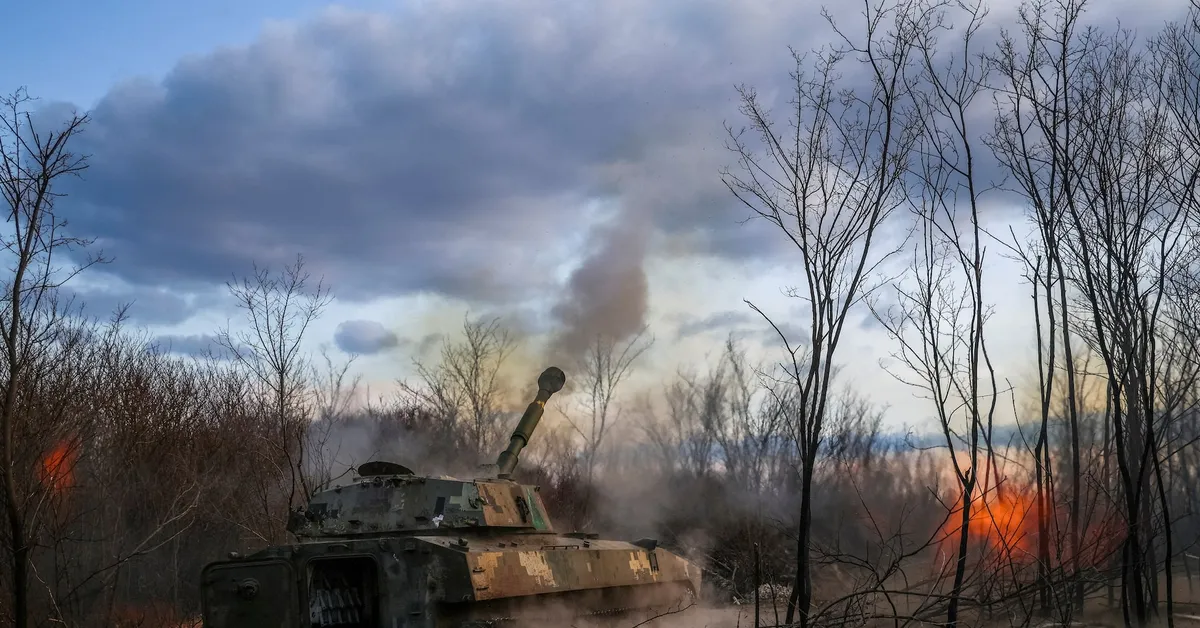
On August 6, 2023, U.S. special envoy Steve Witkoff concluded a pivotal meeting with Russian President Vladimir Putin in Moscow, delivering significant news to former President Donald Trump. According to two sources familiar with the discussion, Witkoff informed Trump that Putin was willing to make substantial territorial concessions to bring an end to the ongoing war in Ukraine. Following this briefing, Trump expressed enthusiasm over the progress made, suggesting the possibility of a historic summit with Putin that would include discussions about a potential land swap.
However, the diplomatic momentum quickly faltered. During a conference call on August 7 with several European leaders, Witkoff stated that Putin was open to withdrawing from the Ukrainian territories of Zaporizhzhia and Kherson in exchange for Ukraine ceding the regions of Donetsk and Luhansk. This assertion surprised many participants, as it conflicted sharply with their own understanding of Putin's stance, according to four officials familiar with the conversations.
The following day, Witkoff appeared to revise his statements during another call led by U.S. Secretary of State Marco Rubio. He clarified that Putin was not actually offering to withdraw from the mentioned territories. Instead, U.S. officials reported that Putin indicated he would not insist on formal recognition from the West of Zaporizhzhia and Kherson as Russian territories. The lack of clarity regarding the content of the Moscow meeting raised concerns among U.S. and European officials.
Witkoff, a real estate mogul with no prior diplomatic experience, deviated from established protocol by attending the Moscow meeting without a State Department notetaker, resulting in the absence of a record detailing Putin's precise proposals. Insights gathered from interviews with over a dozen U.S. and European officials reveal the complexities of the Trump administration's latest initiatives aimed at resolving the war in Ukraine. This culminated in a rather uneventful Trump-Putin summit in Alaska on August 15, where both leaders exchanged pleasantries but failed to secure a peace agreement.
The narrative that emerges portrays an American president eager to act swiftly on foreign policy matters, often relying on intuition and trusted advisers rather than the conventional diplomatic procedures typical of previous administrations. Supporters of Trump argue that his unconventional approach has led to breakthroughs previously thought impossible, such as the reopening of U.S. relations with Syria and direct communication with Putin that could potentially conclude a war that has claimed hundreds of thousands of lives.
Despite these claims of progress, critics assert that Trump's impulsive style has created confusion both within his administration and among international allies. Kurt Volker, a former U.S. ambassador to NATO and special representative for Ukraine during Trump's first term, remarked that the situation remains stagnant, stating, "We are just exactly where we were before Trump took office. Russia has not changed its position one iota." Volker emphasized the absence of a clear strategy to compel Putin to cease hostilities.
As the situation in Ukraine remains dire, a recent missile and drone assault by Russia on Kyiv resulted in at least 18 fatalities, underscoring the lack of advancement in international efforts for peace. The White House defended Trump's overall foreign policy, contrasting it with the previous administration's approach. Anna Kelly, a White House spokeswoman, criticized President Joe Biden for his handling of foreign affairs, asserting that Trump's efforts have yielded more progress toward peace in two weeks than Biden has achieved in over three years.
Some U.S. officials, including Ukraine envoy Keith Kellogg, expressed frustration over Witkoff's contradictory statements at a critical moment, especially as the U.S. began adopting a firmer stance on Russia. Before the Moscow meeting, the Trump administration signaled potential new sanctions against Russia if an agreement to end the war was not reached by August 8—a deadline that passed without any concrete action.
Trump's reliance on trusted confidants like Witkoff has coincided with a significant reshaping of the U.S. national security apparatus, with many experienced Russia and Ukraine experts being dismissed or reassigned. While Witkoff has received accolades for his work ethic, some officials worry that his inexperience may make the U.S. vulnerable to being manipulated by Russian negotiators.
Following Witkoff's meeting with Putin, both he and Trump indicated optimism about a breakthrough, with Trump suggesting that territorial swaps could be necessary to resolve the conflict. This revelation alarmed European officials, who feared that a lenient U.S. approach might compel Ukraine to make painful concessions. European leaders sought clarity from their American counterparts on the specifics of Witkoff's discussions with Putin.
Although some European officials publicly lauded Trump's diplomatic efforts, many were privately apprehensive. Ukrainian officials reportedly informed senior German officials that their intelligence indicated Putin might use the summit with Trump to buy time ahead of a possible Russian offensive later in the year.
The August 15 summit between Trump and Putin in Anchorage ultimately yielded no significant breakthroughs. Trump had already tempered expectations, framing the meeting as just one part of an ongoing diplomatic process rather than a definitive opportunity for a peace agreement. While the U.S. president did not offer any territorial concessions for Ukraine, he did state that a temporary ceasefire was not a prerequisite for lasting peace—a viewpoint that aligns with Putin's stance but diverges from that of many European leaders.
In the wake of the summit, European allies began strategizing ways to influence Trump's future decisions regarding Ukraine. Ukrainian President Volodymyr Zelenskiy, who was scheduled to meet Trump shortly after, sought the support of European leaders to prevent a repeat of previous contentious encounters. Despite formal agreements being drafted regarding future security guarantees for Ukraine, the prospect of ending the war remains elusive, with Russian officials indicating they would not accept any security guarantees involving foreign troops on Ukrainian soil.
While there is hope that Trump could exert pressure on Putin through tougher economic sanctions and military support for Ukraine, the overall situation remains precarious. As Volker remarked, "Trump is really going to be left with no choice" but to take decisive action to address the ongoing conflict.